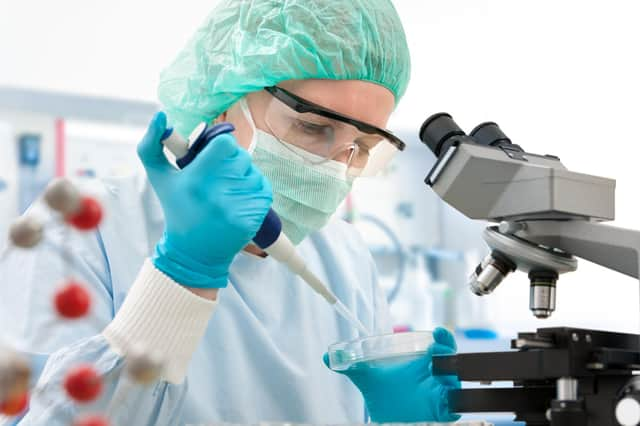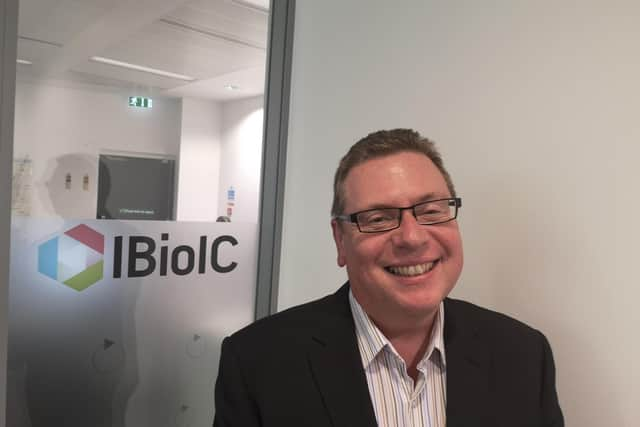Call for Scotland's bioeconomy to re-tool to support the fight against Covid


Mark Bustard, chief executive of the Industrial Biotechnology Innovation Centre (IBioIC), said the country’s internationally renowned technology and skills in industrial biotechnology can be further harnessed to tackle the ongoing pandemic.
Speaking ahead of the IBioIC’s seventh annual conference – being held virtually this year – Bustard said that industrial biotech firms were pivoting towards drug development, production of reagents for diagnostics tests and the development of biologically-derived materials for use in PPE and sanitiser.
Advertisement
Hide AdAdvertisement
Hide AdThe fundamental technology and core skills in the industry – which is aiming to grow to 200 companies with a collective turnover of £900 million by 2025 – could be re-purposed and re-tooled to support Scotland and the UK’s efforts in combatting the disease and any others that emerge, he argued.


Bustard said: “Scotland has world-leading capabilities in industrial biotechnology – an area that makes use of many of the same fundamental technologies and skills that underpin the development of new drugs, diagnostics and chemicals needed to deal with the current pandemic.
“There are many companies working with biologically produced products that have anti-viral properties which could be harnessed to help fight diseases like Covid-19.
“The underlying knowledge base we have is exceptional and in times of emergency, like the one we are going through now, it is being used to support the collective response. We have already seen this to a degree, with a range of companies collaborating to quickly make bottled sanitiser when it was most needed at the start of the pandemic.
“However, there is only so much you can do with science – you also need to produce, and significantly scale-up manufacturing operations. That means we will need to create new value and supply chains or, in some cases, make new indigenous supply chains by having resources available locally.”
The conference will be held virtually on February 10 and 11 and has been made free to attend this year, with a focus on the bioeconomy’s role in helping with the Covid-19 response, developing new local supply chains and contributing to national net zero targets.
Among a host of high-profile speakers is Lord Deben, chairman of the Committee on Climate Change.
A message from the Editor:
Thank you for reading this article. We’re more reliant on your support than ever as the shift in consumer habits brought about by coronavirus impacts our advertisers. If you haven’t already, please consider supporting our trusted, fact-checked journalism by taking out a digital subscription: www.scotsman.com/subscriptions
Comments
Want to join the conversation? Please or to comment on this article.